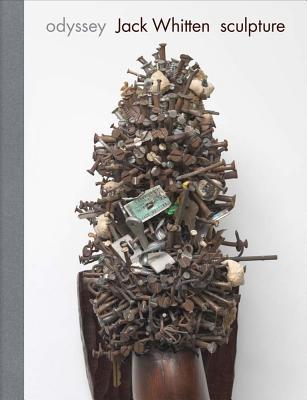"Whitten's objects in carved wood and found materials revisit and reclaim the forms, rituals and spirituality of African sculpture." -Roberta Smith, New York Times
Jack Whitten was one of the most important artists of his generation. His paintings range from figurative work addressing civil rights in the 1960s to groundbreaking experimentation with abstraction in the '70s, '80s and '90s to recent work memorializing black historical figures such as James Baldwin and W.E.B. Du Bois.
Whitten began carving wood in the 1960s in order to understand African sculpture, both aesthetically and in terms of his own identity as an African American, and continued developing this practice throughout his life. For the first time ever, these revelatory works are collected in Odyssey, accompanying a landmark exhibition coorganized by the Baltimore Museum of Art and the Metropolitan Museum of Art.
Odyssey features the sculptures made by Whitten over the past 50 years, as well as the Black Monolith series of paintings, and Whitten's own archival photographs documenting his life and process. The catalog includes major new texts from exhibition curators Katy Siegel and Kelly Baum, as well as contributions from philosopher Kwame Anthony Appiah, art historians Richard Shiff and Kellie Jones, a lengthy biographical interview with Whitten by art historian Courtney J. Martin and the essay "Why Do I Carve Wood?" by the artist himself.
Gorgeously illustrated with hundreds of illustrations and never-before-published photographs, Odyssey is a landmark exploration of one of the most significant artists of the 20th century, and a monument to a life and career that, as described by the Washington Post, "enriched the abstract tradition in Western art with fresh political and spiritual content."
